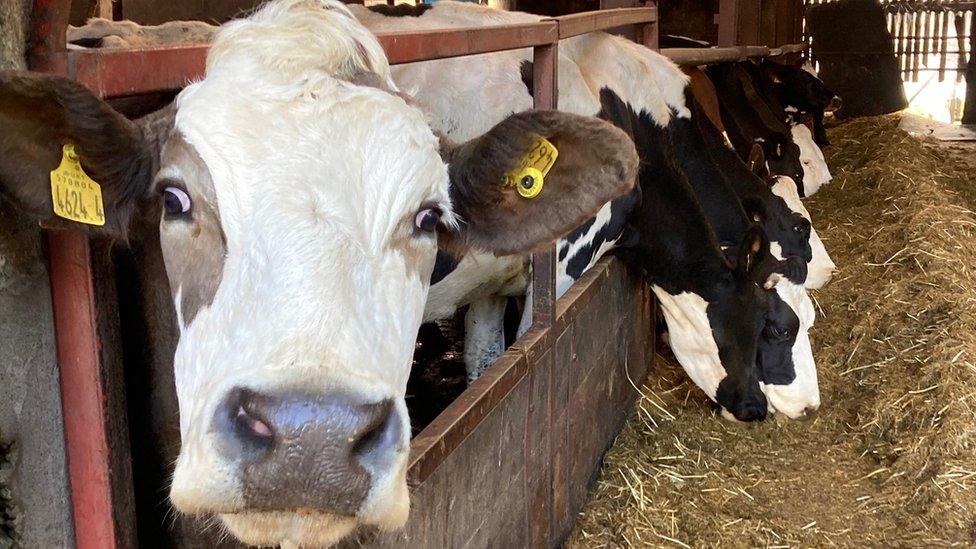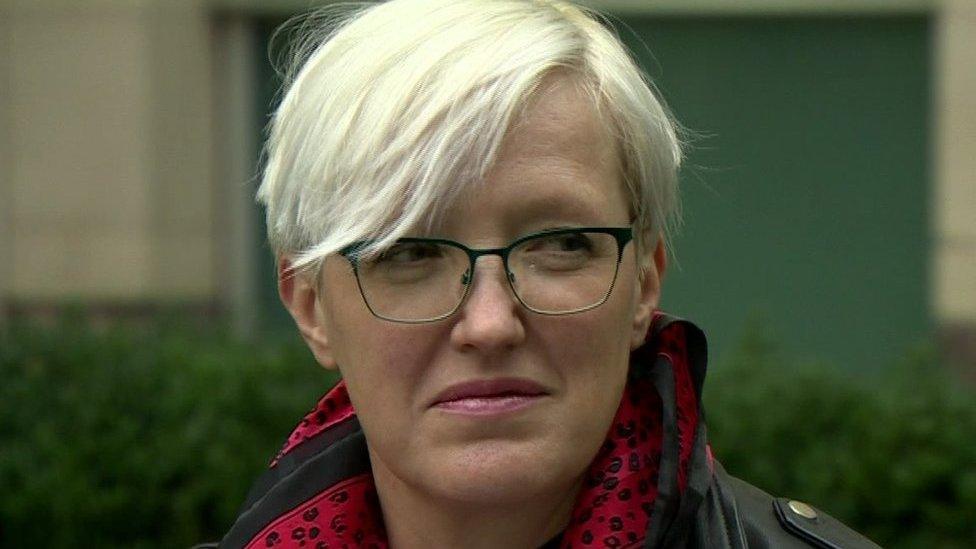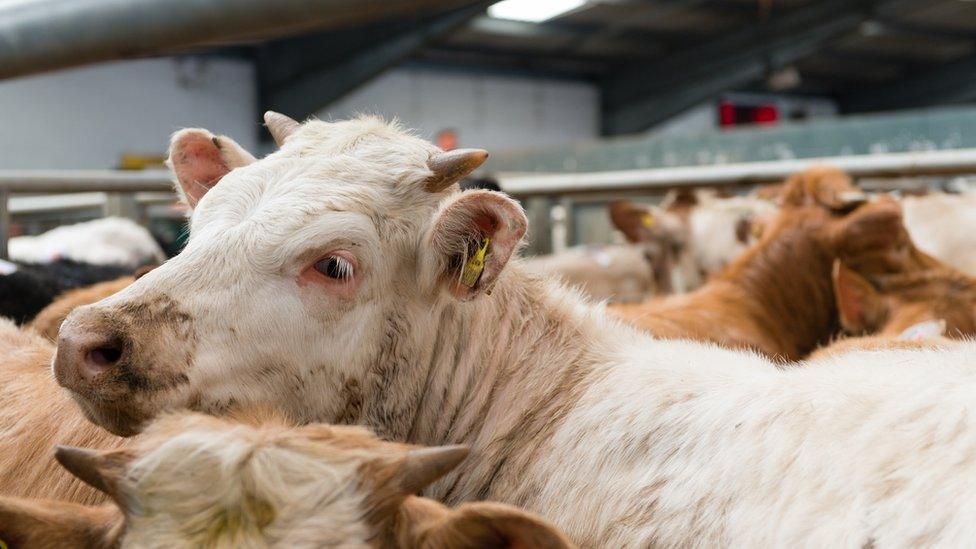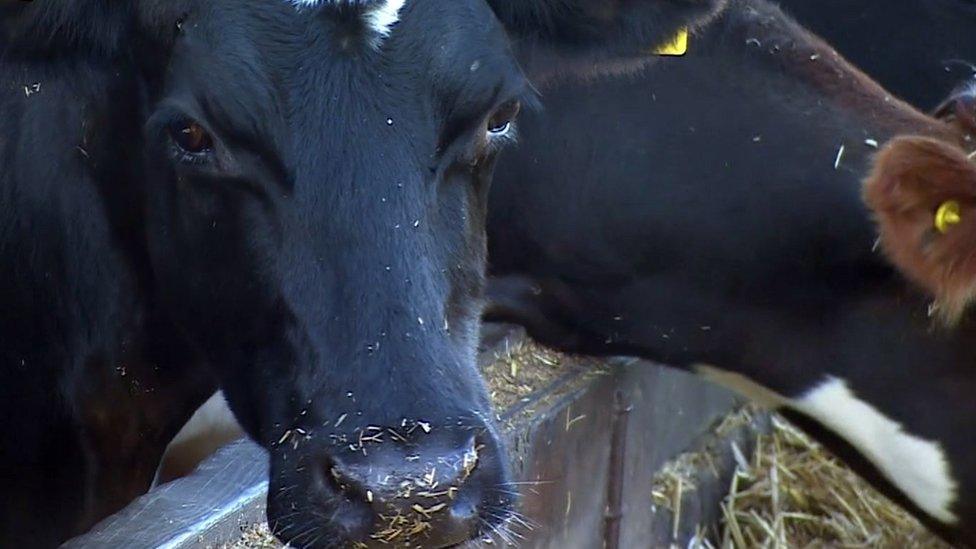Taskforce to tackle animal traceability issues raised by whistleblower vet
- Published

A taskforce is to be set up to implement recommendations around animal traceability after an internal review by the Department of Agriculture, Environment and Rural Affairs (DAERA).
The review was prompted by an industrial tribunal last year, which found in favour of a whistleblower vet.
Dr Tamara Bronckaers resigned from the department in 2018.
Her concerns on animal welfare and the deletion of cattle movements at some livestock markets were not acted on.
Dr Bronckaers' concerns had been reported to her manager, Dr Julian Henderson, and the chief vet, Robert Huey.
The tribunal found in her favour, and DAERA appealed that ruling.
Earlier this month, they withdrew their appeal.
The settlement in the case is expected to reach £1m, including costs.

An industrial tribunal ruled in favour of Dr Tamara Bronckaers last year
During the tribunal, Dr Bronckaers argued that some livestock market operators were not adhering to their statutory duties, and that departmental officials who were aware of this had failed to adhere to their responsibilities to enforce the relevant legislation.
She told the tribunal she felt she had to resign, after being "excluded, ignored and undermined" when she brought issues to the department's attention.
After the tribunal found in her favour, a departmental review of the robustness of controls for animal traceability at livestock markets and abattoirs made several recommendations.
Environment Minister Edwin Poots said: "An important priority for my department is to ensure the integrity of our animal traceability systems and our disease status for public health, for animal health and for international trade.
"While the matters under consideration by the recent industrial tribunal occurred before my time as minister, my department has completed an internal audit review of the issues raised and is implementing the recommendations from that review with urgency."
In the course of Dr Bronckaers' work, she found breaches of animal welfare at livestock markets.
She also uncovered failures in the way the movement of cattle was recorded at markets and the abuse of a process called "deleted moves".
That was a process whereby a dealer would buy an animal, without having someone to immediately sell it on to.
The animal would join the dealer's herd for a period of time before a buyer was found, but that move would then be deleted from the section of the tracing system that was visible in markets.
It remained in the section visible at departmental level.
That, Dr Bronckaers claimed, could affect the traceability of meat within the food supply chain and have an impact on the spread of disease in cattle, in particular tuberculosis.
She told the tribunal that 4,800 to 5,000 animals were having their moves deleted out of livestock markets every year.

Dr Bronckaers told the tribunal last year some livestock market operators were not adhering to statutory duties
But her concerns were not acted on and many of her e-mails were ignored.
The tribunal judge said the issues raised by Dr Bronckaers were "very serious" and described the evidence of Dr Julian Henderson and Chief Vet Robert Huey as "deeply unsatisfactory".
Dr Julian Henderson has been temporarily promoted to the post of deputy chief vet.
In a statement, a spokesperson for the Executive Office said: "This case highlights a number of significant concerns and the head of the civil service welcomes the investigatory processes being undertaken by DAERA into this matter.
"This case underlines the need to drive forward the important work we have committed to at pace and consistently across all departments."
The Food Standards Agency Northern Ireland (FSANI) has responsibility for monitoring compliance with animal welfare in slaughterhouses.
"We are committed to the highest standards of animal welfare in Northern Ireland, including when animals are slaughtered or killed," said Andy Cole, Deputy Director of FSANI.
"The traceability of meat is essential and everyone involved in the food chain must ensure they follow the systems in place to maintain consumer health and confidence."
Related topics
- Published24 September 2021
